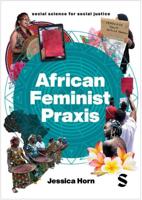Publisher's Synopsis
This book offers a critical analysis of events that are impacting the daily lives of millions of people in Brazil and many other countries. Political polarization, disinformation, authoritarianism, and economic hardship are creating a climate of social volatility that makes it easy to manipulate people and push deceptively simple solutions. Drawing on the established knowledge found in the works of highly influential authors, the book examines topics such as democracy, authoritarianism, imbalances of power within the government, judicial activism, attacks on freedom of speech, the myth of military efficiency in public administration, and the dynamics of new technologies in Defense sector issues.
Throughout the book, Ráyel G. C. Barroso explores the historical origins of "military messianism" and its negative consequences for democracy. He also constructively examines the differences between skills acquired through military training and the specific needs for effective performance in public management, highlighting the limitations of military expertise when applied to civilian contexts. Furthermore, the text discusses the historical experience of military interventions in Brazil and around the world, their harmful outcomes, and the importance of strengthening democratic institutions as an alternative to authoritarianism.
Finally, the author addresses the legislation that defines the role and responsibilities of the Armed Forces in Brazil, emphasizing the need for their professionalization and integration into the democratic system. The author suggests approaches that bridge various areas, such as public demands, the paradigm of decentralized information, the need to consolidate democracy, the balanced actions of government agencies, the emergence of disruptive technologies like Artificial Intelligence and quantum computing, and the strategic partnerships between the manufacturing sector and the Defense sector. Using a straightforward and clear approach, readers are guided through knowledge sources that can make a real difference in their understanding of issues that are highly relevant in both national and international debates.










